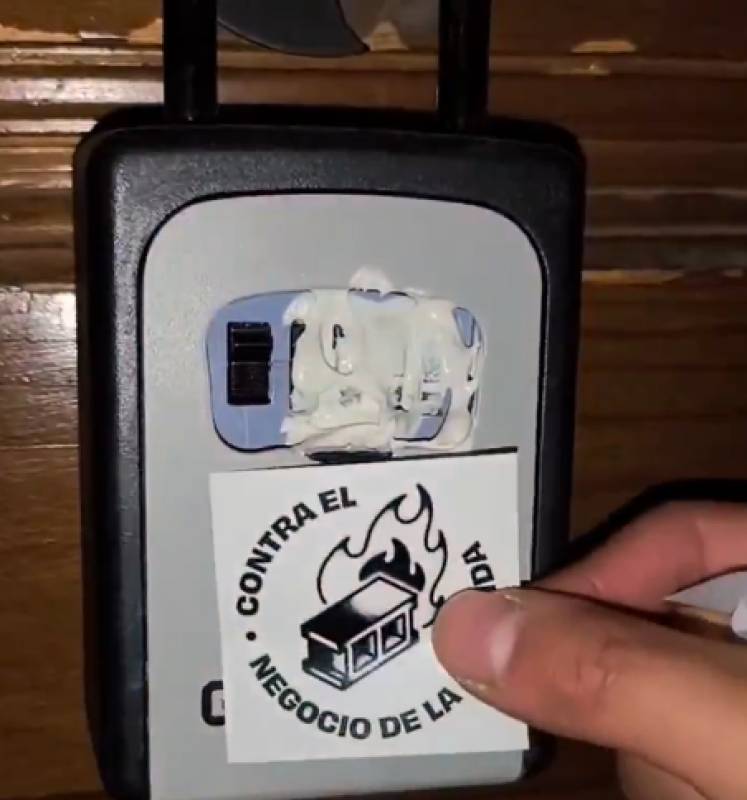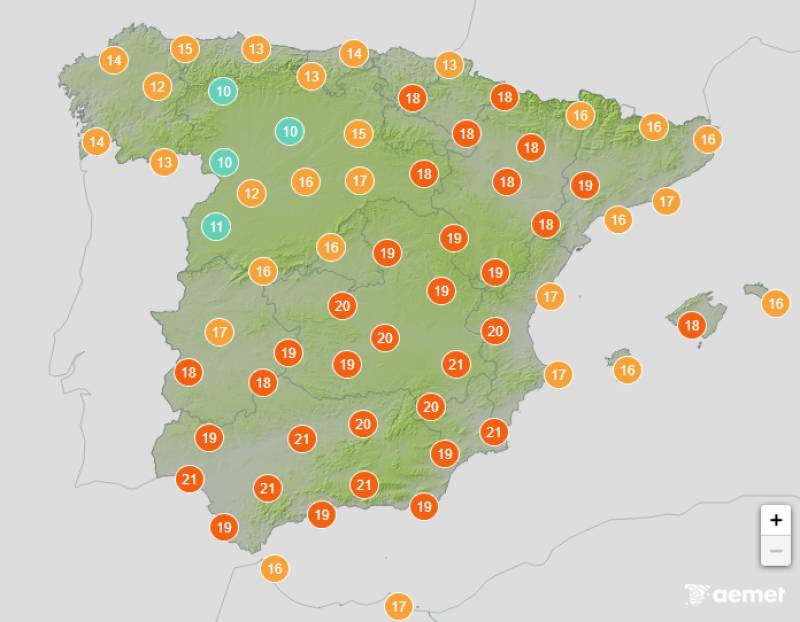
To be listed on the haciendadelalamo TODAY MAP please call +34 968 018 268.
article_detail
5 things you should know before flying to Spain for Christmas
Winter is the perfect time to visit Spain to enjoy its mild temperatures and variety of festive activities

Christmas is an ideal time to visit Spain for several reasons and while December and January can be fairly chilly, it’s easy to enjoy everything the season has to offer to a sunny, bright backdrop. Even though the temperatures tend to drop, heavy rain is unusual, especially in the south, and tourists are known to flock to the beaches of the Canary Islands all throughout the winter.
It’s worth remembering though that Christmas celebrations in Spain differ to the UK in several important ways, so it’s best to brush up on some of the rules and nuances of the festive season to avoid being caught out.
Here are some of the key things you should know before flying to Spain this Christmas.
1. Flying high
In Spain, just like the rest of the world, prices for flights and hotels tend to increase during peak travel seasons like Christmas. Be sure to book your flights and accommodation well in advance to get the best rates.
Many cities in Spain host festive holiday markets where you can find unique gifts, try local food and drinks, and enjoy live music and entertainment. Some popular markets include the Mercado Navideño in Madrid and the Fira de Santa Llúcia in Barcelona.
But again, these festive touristy destinations often charge a premium to cash in on the high demand. To avoid paying over the odds, it’s important to do your research. Remember: the public transport infrastructure in Spain is second to none, particularly in the larger cities, so you could save some money by staying a little further afield rather than right in the hub.
When it comes to taxis, prices for liveried cabs are regulated across Spain but drivers are allowed to charge more on holidays. Many unscrupulous individuals will run so-called pirate taxis during Christmas to make a quick buck, and these should be avoided at all costs.
When you arrive at the airport, or if you simply need a drive to get from A to B while on holiday, only fully legal companies who have a valid public transport licence can offer this service. These legit taxis and transport vehicles are easily identifiable as they always have a blue number plate on the back.
Pirate taxis, on the other hand, are just ordinary cars or mini-buses without the correct liability insurance and while the fare price might be cheaper, this often ends up costing a lot more time and money in the long run.
2. Double check before checking in
Brexit has also had an impact on how we travel, so it’s important to remember that British passports must have been issued within 10 years to guarantee entry to Spain, and they must have at least three months validity remaining from the date you leave.
UK holidaymakers won’t need a visa as long as they aren’t planning to stay longer than 90 days in a 180-day period, but your passport will be stamped when you enter and leave Spain. Also, from the middle of 2025, Britons will likely have to apply for an ETIAS (European Travel Information Authorisation System) visa waiver before they travel.
Sadly, in these days of financial struggle, strikes at airports and train stations have become an almost weekly occurrence, and Spain is no exception. A major baggage handlers’ strike has been called for eight days over the Christmas holidays 2023, so you should check whether your flight could be affected.
Most airlines and rail operators will inform passengers via email if there are any delays or cancellations, but it’s always best to check the official website for updates before hitting the road.
3. Shop til you drop
Spain has adopted many foreign shopping traditions such as Black Friday and Cyber Monday, and most high street stores start their ‘January’ sales well before the New Year. Christmas is a great time to stock up on the essentials cheaply or to treat yourself with a big spree, but be sure to double-check opening hours.
Although it’s true that the 25th isn’t as big a deal to the Spanish (Christmas Eve and Three Kings in January are the main celebrations), many businesses and shops will operate on reduced hours over the holidays, and several supermarkets close altogether.
And if you’re travelling to Madrid over Christmas this year, you’ll need to plan ahead since workers at several of the largest chains, including Carrefour and Alcampo, are planning to strike on some of the busiest shopping days: December 23, 24 (Christmas Eve), 30 and 31 (New Year’s Eve).
4. Money talks
There is a little-known regulation across the EU that has been known to catch many UK travellers out, and Christmas is the very last time you want to be turned away at the airport. The long-standing rules says that British tourists entering Spain can be asked for proof of three things: the funds to support their stay, a return ticket and the address they are staying at while on holidays.
It’s true that border security officers rarely impose this rule, but it’s more likely to happen during busier periods. In Spain, the authorities ask that British visitors have at least 100 euros for each day of their trip.
5. Boozy Brits
The Spanish like having a drink at Christmas as well as anybody, but in the last couple of years the authorities have been taking a harder line on what’s unflatteringly known as drunken tourism. In order to enjoy the festive season without running into trouble, it’s important to know the rules and regulations where you’re staying.
Since last year, many popular all-inclusive resorts in the likes of Magaluf, Mallorca and Ibiza have restrictions on the amount of drink that can be consumed. Visitors to certain hotels will be restricted to six free alcoholic beverages per day – three at lunch and three at dinner. Anything extra they’ll have to pay for.
Many areas, particularly the islands, have also banned organised pub crawls, happy hours and booze cruises, so it’s best to check the local regulations before you travel.
In Madrid, the Balearic Islands and the Canary Islands, drinking alcohol in public places, except licensed bars and restaurants, is strictly forbidden and is punishable with a fine of up to 3,000 euros.
Large illegal parties are also a growing trend in holiday hotspots like Ibiza and anyone caught attending a gathering in an unlicensed premises can face a fine of up to 300,000 euros.
You might also like: The top 10 tourist mistakes in Spain
Image: Archive
Loading
Sign up for the Spanish News Today Editors Roundup Weekly Bulletin and get an email with all the week’s news straight to your inbox
Special offer: Subscribe now for 25% off (36.95 euros for 48 Bulletins)
OR
you can sign up to our FREE weekly roundup!
Read some of our recent bulletins:
Discount Special Offer subscription:
36.95€ for 48 Editor’s Weekly News Roundup bulletins!
Please CLICK THE BUTTON to subscribe.
(List price 3 months 12 Bulletins)
Read more stories from around Spain:
Contact Murcia Today: Editorial 000 000 000 /
Office 000 000 000



























